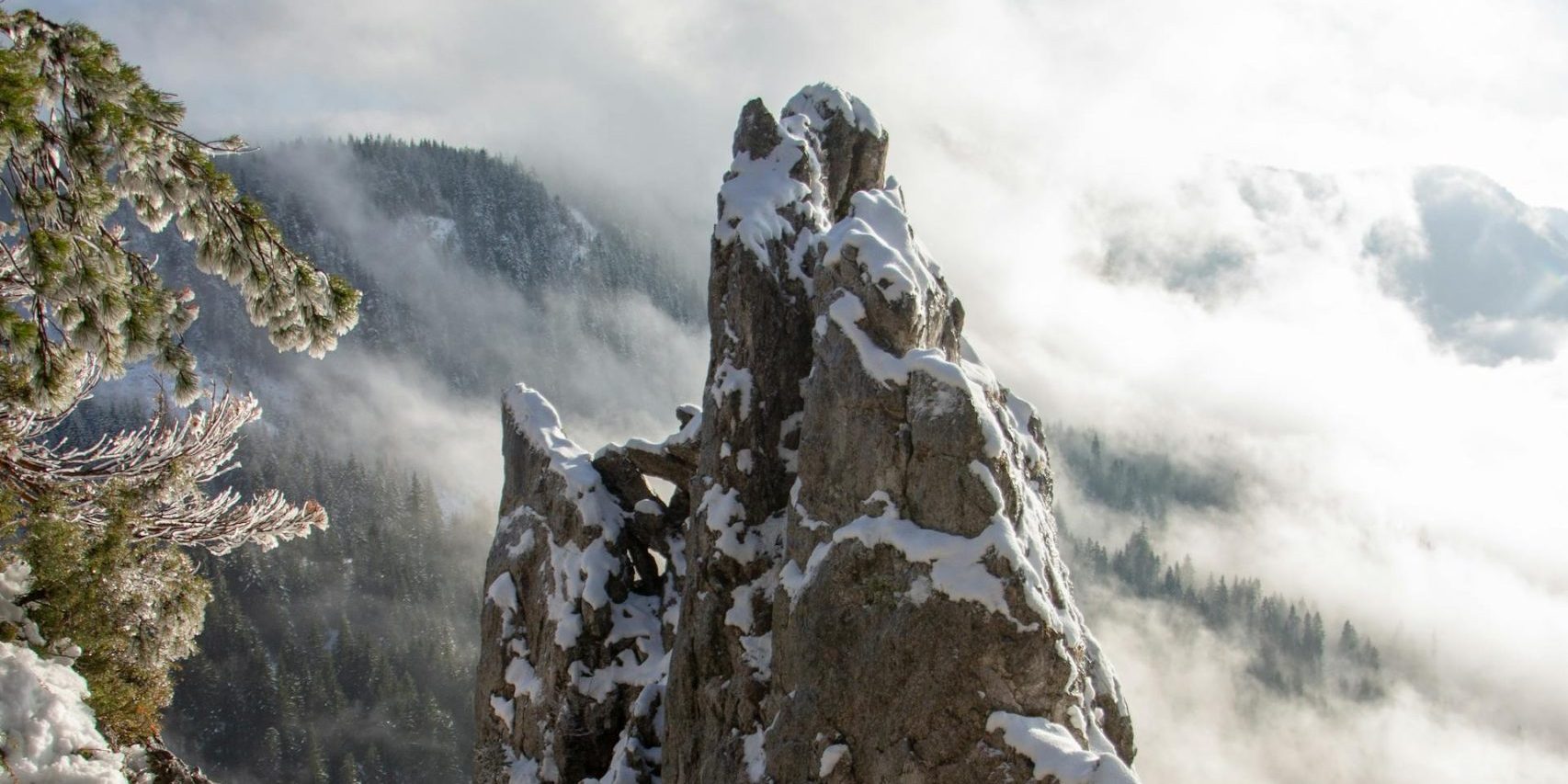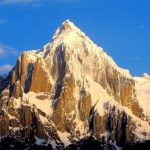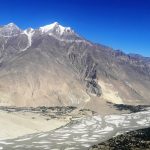Baintha Brakk, also known as The Ogre, is a towering marvel in the Karakoram Range of Pakistan. At an impressive height of 7,285 meters (23,901 feet), this peak is renowned for its technical difficulty and breathtaking beauty. For mountaineers and adventurers, Baintha Brakk offers an unmatched experience. Here are five reasons why this formidable mountain should be on your bucket list.
Unique Climbing Routes
Baintha Brakk offers a variety of challenging climbing routes that cater to experienced climbers seeking an adrenaline-filled adventure.
- Southwest Face
Known for its extreme difficulty, the Southwest Face is a dream for skilled climbers. It features steep rock walls and mixed climbing sections, demanding advanced skills in both rock and ice climbing. - North Ridge
Slightly less technical than the Southwest Face, the North Ridge still presents a tough challenge. It requires climbers to navigate icy ridges and rocky outcrops, testing endurance and precision. - East Face
A less-traveled route, the East Face offers vertical ice walls and rugged rock sections. This path is ideal for thrill-seekers looking to explore uncharted terrain.
Table of Contents
Stunning Natural Beauty
The journey to Baintha Brakk is as mesmerizing as the climb itself, offering unparalleled natural wonders.
- Biafo Glacier
The approach to the mountain takes you through the Biafo Glacier, one of the longest glaciers outside the polar regions. Towering ice formations and stunning landscapes create a surreal environment. - Neighboring Peaks
From the summit and higher altitudes, climbers are treated to views of iconic peaks like K2, Gasherbrum, and Latok. These majestic neighbors provide an awe-inspiring backdrop.
Rich Climbing History
Baintha Brakk’s climbing history is rich and inspiring, adding a sense of legacy to the ascent.
- First Ascent
British climbers Doug Scott and Chris Bonington were the first to conquer Baintha Brakk in 1977. Their expedition was marked by extreme challenges, setting a benchmark for future climbs. - Notable Expeditions
Since then, climbers have made several remarkable attempts, including solo climbs and winter ascents. Each success and failure adds to the mountain’s legendary status.
Cultural Immersion
The journey to Baintha Brakk offers more than just a climbing challenge. It’s an opportunity to connect with the vibrant culture of the Gilgit-Baltistan region.
- Shigar Valley
Before reaching the mountain, many climbers pass through the stunning Shigar Valley. This region is dotted with historical villages, terraced fields, and ancient architecture, giving visitors a glimpse into the Balti people’s rich heritage. - Balti Hospitality
The Balti people are famous for their warmth and hospitality. Sharing meals, hearing local stories, and experiencing their unique customs enriches the journey.
Preparation and Logistics
Climbing Baintha Brakk is no easy feat. Proper preparation and logistics are crucial for a safe and successful expedition.
- Physical Fitness
Climbers must undergo rigorous training to build strength and endurance. High-altitude acclimatization hikes are essential to prepare for the reduced oxygen levels. - Technical Skills
Advanced skills in rock and ice climbing are non-negotiable. Familiarity with using equipment like crampons, ice axes, and ropes is critical. - Essential Gear
Packing the right gear is vital. Here are some must-haves:- Climbing Harness: A comfortable, durable harness.
- Ropes and Carabiners: Reliable ropes and a variety of carabiners.
- Ice Axes and Crampons: Essential tools for icy terrains.
- Protective Gear: Helmets, gloves, and weather-proof clothing.
Comparing Baintha Brakk with Other Peaks
| Feature | Baintha Brakk | K2 | Ultar Sar |
|---|---|---|---|
| Height | 7,285 meters | 8,611 meters | 7,388 meters |
| Primary Challenge | Technical Rock/Ice | High Altitude | Technical Rock/Ice |
| Climbing Season | June to August | June to August | June to August |
| Average Duration | 4-6 weeks | 6-8 weeks | 4-6 weeks |
| Required Skills | Rock, Ice, Alpine | High-altitude Climbing | Rock, Ice, Alpine |
FAQs
- What is the best time to climb Baintha Brakk?
The ideal time is from June to August when weather conditions are most favorable. - How challenging is Baintha Brakk?
It’s one of the most challenging peaks, requiring advanced technical skills and endurance. - Do I need permits to climb?
Yes, permits from the Pakistani government are required. Local tour operators can assist in the process. - How long does it take to climb Baintha Brakk?
A typical expedition lasts 4-6 weeks, including acclimatization and setup time. - What’s the nearest town?
Skardu serves as the primary hub for expeditions to Baintha Brakk.
Final Thoughts
Baintha Brakk is a dream destination for seasoned climbers. Its unique routes, breathtaking beauty, and cultural richness make it an unforgettable experience. Whether you’re drawn by the technical challenges or the chance to explore untouched wilderness, this majestic peak is worth every effort.


